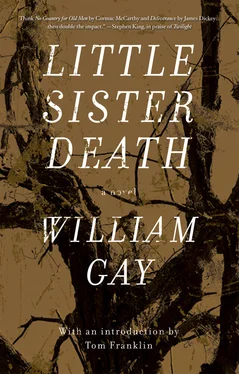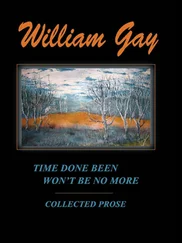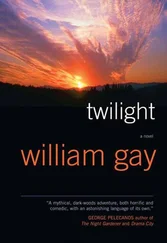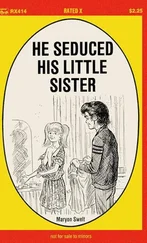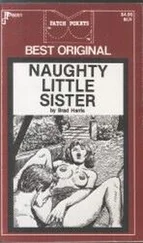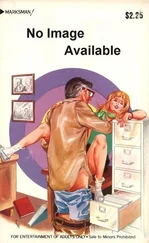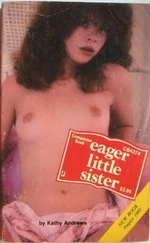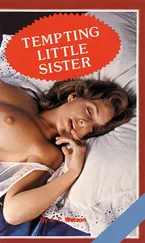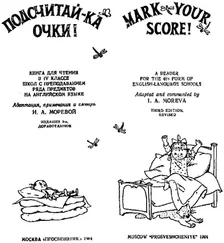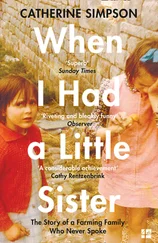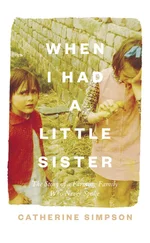He also knew it would be useless to try sleeping for another two or three hours: he slept now when the house slept, as if in some curious way their cycles had become synchronous, catching catnaps in the daytime, dozing in the hot still honeysuckle afternoons. He knew the house was awake now, he could stand in its center and feel its heart beating around him, synced with his own breathing when he breathed, feel its attention on him, alert and focused as a cat watching a broken-winged bird.
He went out. The night was hot and still, holding its breath, not a leaf in motion. The creek murmurous across the polished stone. A whippoorwill called from some vague hollow far away and lost in the dark.
The toolshed was burnished silver in the moonlight, the rusted roof draining off what light there was, the canted door showing a wedged-shaped section of darkness. It was like no darkness that ever was, at once forbidding and achingly evocative and utterly foreign. His feet were damp with dew soaking through his sneakers before he even knew he was approaching it.
He went in the door, the rusted hinge protesting, a darkness here moonlight would not defray. At first he could see nothing, stood swaying in the hot still dark like a man unbalanced by wind or coalesced out of the darkness as if he were consciously creating them, and coincident with his dim vision felt the heat just leave, suddenly just not there anymore, trickles of perspiration down his ribcage gone icecold, the still fetid air, the cold charnel smell of the grave, and the hair prickled on his forearms and at the back of his neck.
There was a manlike bulk crouched in the corner of the toolshed. Heavyset hunkered the way a country man might sit, whittling, and very still, just something manlike and undistinguished moving the old singletrees and tracechains, smell that seemed to take him down bowered dusty roads to a long time ago, a smell compounded of sweat and tobacco and the smell of the warm earth and horses and the springtime smell of time itself, distillate and aphrodisiac.
Then the dark bulk stirred and a slurred voice said out of the darkness: Get you a little drink good buddy.
In a space between the boxing over the door lintel of the toolshed he found a half pint of whiskey three-quarters full: somebody’s hidey-hole, he guessed. He had long become obsessive about searching for artifacts of the place’s past, old bottles, broken tools, nameless chunks of rusted metal, an old one-bitted ax head he found beneath the rotted floorboards. Anything with threads of the past stringing off it, if you didn’t know what the lock looked like, who knew what the key might be?
He unscrewed the cap and drank. Sweet Jesus that’s awful, he said, and a low chuckle came from the corner of the toolshed. In the oblique moonlight he was someone else and he was somewhere he had never been before. He slid the bottle backhanded into a hippocket he hadn’t known he had and the dried-out brogan workshoes he was wearing chafed his ankles. He was walking through luxuriant thick wild oats that came up to his thighs, the path trending through them gleamed like quicksilver, vanished. The world was the same yet different.
The house still sat on its knoll against the hillside but there was no light now, nothing but the brooding bulk of wood and stone and the moonlight on the windows and even the trees looked different, lusher, more opulent, and when he turned, there was a cornfield where no cornfield should be, the rows clocking away into nothingness, the stalks blueblack and gleaming.
A dog brushed the calf of his leg and wended away, toward the creek, without noticing him. Somewhere along the creekbank lost to him in the shadows beneath the sycamores came a young girl’s laughter, achingly sweet and pure and nostalgic as the tinkling sound of some long-lost childhood carnival carillon. He was seized with longing so intense it ached in his chest, he wanted it always to keep, to drag out secretly and study it like a yellowed photograph, and he thought I am home, this is me, this is where I have been rambling down to all these years.
The moon rode above him, cold and still as a world locked in ice. When he raised his head to study it, it was no moon he knew, a moon of other seasons comfortless and uncaring and utterly remote.
A part of him stood aside and thought this is a dream, but I have got to remember this, there is something here I can use. Some lines from W. H. Auden drifted through his mind.
The stars are not wanted now: put out every one:
Pack up the moon and dismantle the sun;
Pour away the ocean and sweep up the wood.
For nothing now can ever come to any good.
The creaking of the toolshed hinges drew him slowly around; his body felt foreign to him, awkward, an older man’s body, ill-used and heavy. The canted door swung slowly outward on its one good hinge, and a tide of black blood erupted soundlessly onto the silver grass. The blood pooled in the lowbank near the creek, rising incrementally, foaming in the thick wild oats, eddying onto the worn footpath, staining the moonwhitened road that wound to the bridge. He could feel it lapping about his ankles.
Then in an eyesblink it was gone and he could smell the dew and the wild oats again and three men were clambering over the wooden gate and dropping into the barn lot, dusting themselves off and crossing the yard toward the house, an old frockcoated man with muttonchop whiskers and a heavyset prosperous-looking man in a broad-brimmed hat and a felt-hatted black who walked with a stifflegged shambling gait. They seemed to be talking animatedly among themselves although he could hear no sound. One by one they vanished, as if they filed off the edge of the earth. Then a voice in Binder’s ear said, almost conversationally, Slit the little roundheeled whore’s throat, is what I’d do. A voice sourceless and genderless and somehow mechanical and Binder didn’t even wonder if it was talking to him or not.
A weight of morning light on his eyelids, featureless yellow world, reality seeping in, he awoke by degrees, like a drunk remembering the places he was and the things he did. The toolshed, he thought. Jesus Christ, what’s the matter with me. He felt strange and dislocated, half afraid to open his eyes, caught in the strand of the dream he half wanted to hang onto. Come on, he said, you’re a tough guy. You can do it. He became aware of white ceilings, walls of deep rose, the comforting whir of the air conditioner. He remembered Corrie saying: You had too much to drink last night, and another part of his mind said, Hell yes, the electric pruner, that’s what the damn manlike bulk was.
Corrie slept beside him, her dark hair tousled, a careless arm thrown across her face, and a wave of love and gratitude hit him with such force it left him dizzy. Then he saw the butcher knife. It had been inserted between Corrie’s pillow and the mattress, perhaps eight or ten inches. Beyond her tanned face he could see an inch or so of serrated blade and the fingergrip rosewood handle.
He got up incrementally careful not to jar the bed, noticing without surprise that he was naked, his bare feet clotted with wild oat seeds, soundless across the carpet. She stirred as he eased the knife from beneath the pillow, her eyes opened beneath his face, startled and blue, so close. Lefthanded he slid the knife out of sight under the bed, stroked her cheek with his right. Her eyes were depthless and guileless, so close to his own, eyes you could drown in. Abruptly tears stung his eyes and he hid his face in the soft hollow of her throat. Why, baby, she said, and raised a tender hand to stroke his hair.
It could work the TV now. Stephie had seen it do it with Pooh and Piglet twice. But intuitively she knew that it did not work the electronic things inside the back of the TV but with the things inside her mind or her head. Daddy said the brain was electronic too, just a very complex computer that ran on tiny bits of electricity, but she didn’t believe it and Mommy didn’t either. Mommy said God made it and no man could make anything approaching the mind because the mind was sacred. It had a soul, you unplug it and all it was was a bunch of junk.
Читать дальше
